Related Research Articles
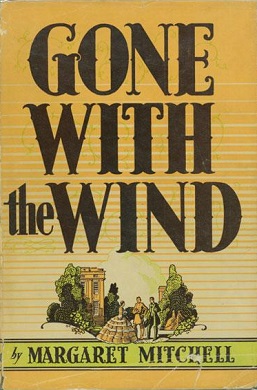
Gone with the Wind is a novel by American writer Margaret Mitchell, first published in 1936. The story is set in Clayton County and Atlanta, both in Georgia, during the American Civil War and Reconstruction Era. It depicts the struggles of young Scarlett O'Hara, the spoiled daughter of a well-to-do plantation owner, who must use every means at her disposal to claw her way out of poverty following Sherman's destructive "March to the Sea". This historical novel features a coming-of-age story, with the title taken from the poem "Non Sum Qualis eram Bonae Sub Regno Cynarae", written by Ernest Dowson.

The Scarlet Letter: A Romance is a work of historical fiction by American author Nathaniel Hawthorne, published in 1850. Set in the Puritan Massachusetts Bay Colony during the years 1642 to 1649, the novel tells the story of Hester Prynne, who conceives a daughter with a man to whom she is not married and then struggles to create a new life of repentance and dignity. As punishment, she must wear a scarlet letter 'A'. Containing a number of religious and historic allusions, the book explores themes of legalism, sin and guilt.

Katie Scarlett O'Hara Hamilton Kennedy Butler is a fictional character and the protagonist in Margaret Mitchell's 1936 novel Gone with the Wind and in the 1939 film of the same name, where she is portrayed by Vivien Leigh. She also is the main character in the 1970 musical Scarlett and the 1991 book Scarlett, a sequel to Gone with the Wind that was written by Alexandra Ripley and adapted for a television mini-series in 1994. During early drafts of the original novel, Mitchell referred to her heroine as "Pansy", and did not decide on the name "Scarlett" until just before the novel went to print. PBS has called O'Hara "quite possibly the most famous female character in American history..."
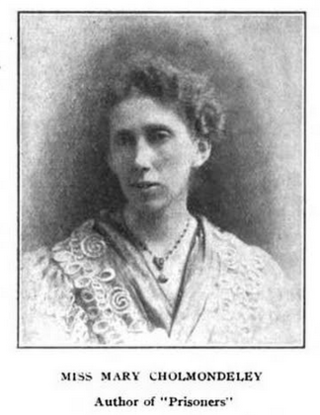
Mary Cholmondeley was an English novelist. Her bestseller Red Pottage satirised religious hypocrisy and the narrowness of country life. It was adapted as a silent film in 1918.

Ordeal by Innocence is a work of detective fiction by British writer Agatha Christie, first published in the UK by the Collins Crime Club on 3 November 1958 and in the US by Dodd, Mead and Company the following year. The UK edition retailed at twelve shillings and sixpence (12/6) and the US edition at $2.95.
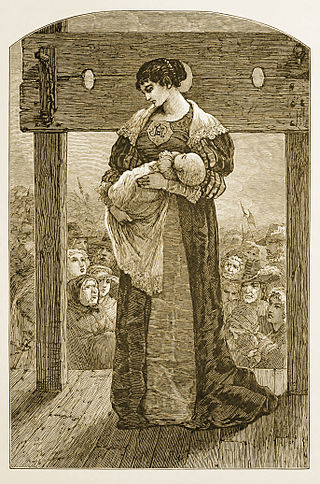
Hester Prynne is the protagonist of Nathaniel Hawthorne's 1850 novel The Scarlet Letter. She is portrayed as a woman condemned by her Puritan neighbors. The character has been called "among the first and most important female protagonists in American literature".

Scarlett is a fictional character from the G.I. Joe: A Real American Hero toyline, comic books and animated series. She is one of the original members of the G.I. Joe Team, and debuted in 1982. The character is also featured in both the G.I. Joe: Sigma 6 animated series and comic books. Scarlett was portrayed by actress Rachel Nichols in the 2009 film G.I. Joe: The Rise of Cobra and Samara Weaving in the 2021 film Snake Eyes.
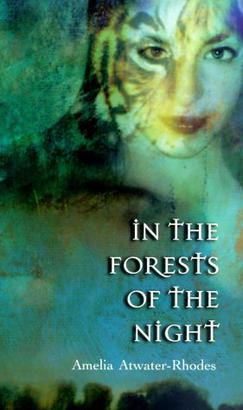
In the Forests of the Night is a vampire novel written by Amelia Atwater-Rhodes, and published in 1999. It was originally entitled White Wine. Atwater-Rhodes wrote it at the age of thirteen, but it was published on May 11, 1999, about a month after she turned fifteen. It is the first novel in the Den of Shadows series. It tells the story of a three-hundred-year-old vampire named Risika and her struggles throughout her life, both before and after she was turned into a vampire. The novel is told in first-person narrative by the protagonist, Risika. It was well-received by critics.
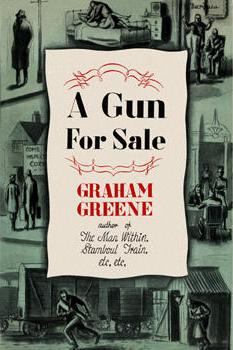
A Gun for Sale is a 1936 novel by Graham Greene about a criminal called Raven, a man dedicated to ugly deeds. When he is paid, with stolen notes, for killing the Minister of War, he becomes a man on the run. Tracking down the agent who double-crossed him, and eluding the police simultaneously, he becomes both the hunter and the hunted. The novel was published and filmed in the United States under the title This Gun for Hire.

Jane Helen Findlater was a Scottish novelist whose first book, The Green Graves of Balgowrie, started a successful literary career: for her sister Mary as well as for herself. They are known for their collaborative works of fiction as well as their own individual writing. Sometimes they are referred to as the Findlater sisters.
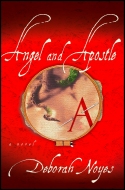
Angel and Apostle is a novel written by Deborah Noyes and published in 2005. It is often viewed as a sequel to The Scarlet Letter, a novel by American author Nathaniel Hawthorne, but it is more like a companion due to the overlap of events between the novels.
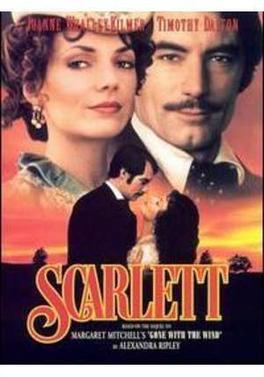
Scarlett is a 1994 American six-hour television miniseries loosely based on the 1991 book of the same name written by Alexandra Ripley as a sequel to Margaret Mitchell's 1936 novel Gone with the Wind. The series was filmed at 53 locations in the United States and abroad, and stars Joanne Whalley-Kilmer as Scarlett O'Hara, Timothy Dalton as Rhett Butler, and Sean Bean as Lord Richard Fenton. The miniseries was broadcast in four parts on CBS on November 13, 15, 16, and 17, 1994.

William Henry Hugh Cholmondeley, 3rd Marquess of Cholmondeley, styled Lord Henry Cholmondeley from 1815 until 1870, was a British peer and Conservative Member of Parliament.
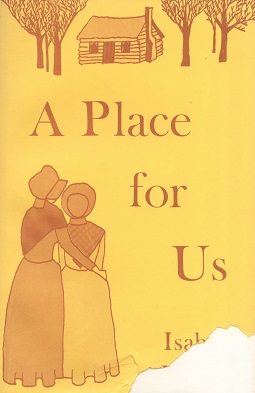
Patience and Sarah is a 1969 historical fiction novel with strong lesbian themes by Alma Routsong, using the pen name Isabel Miller. It was originally self-published under the title A Place for Us and eventually found a publisher as Patience and Sarah in 1971.
Fucking A is a play written by American playwright Suzan-Lori Parks. It was produced by DiverseWorks and Infernal Bridegroom Productions and premiered in Houston, Texas on February 24, 2000.
Red Pottage is a 1918 British silent drama film directed by Meyrick Milton and starring C. Aubrey Smith, Mary Dibley and Gerald Ames. It is an adaptation of the 1899 novel Red Pottage by Mary Cholmondeley.
Red Pottage may refer to:

Ordeal by Innocence is a Three-part BBC drama that was first broadcast during April 2018. It is based on the Agatha Christie novel of the same name and is the third English-language filmed version to be broadcast. The drama stars Morven Christie, Bill Nighy, Anna Chancellor, Alice Eve and Eleanor Tomlinson amongst others.
Hester Lisle née Cholmondeley (1755–1828) was an English noblewoman and courtier. She is noted for her role as lady in waiting to Caroline of Brunswick, and the evidence she gave in 1806 on the affairs with men involving the Princess, married to George, Prince of Wales.